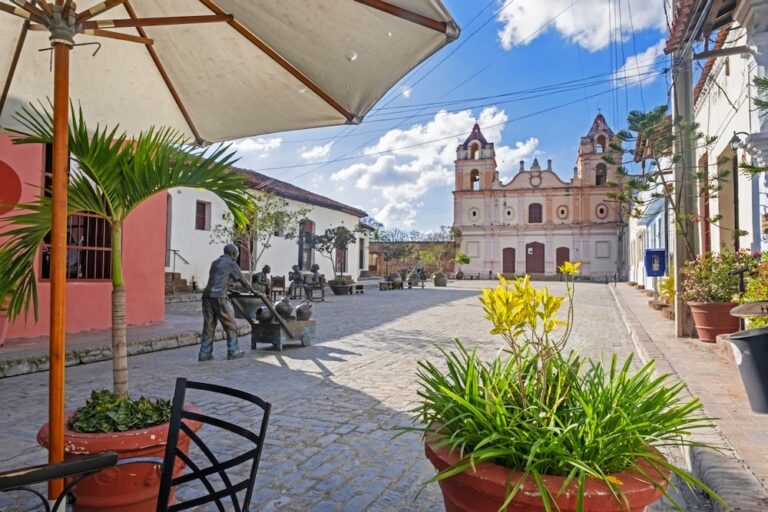October 1996 marks the first anniversary of the founding of the independent Cuban news agency Cuba Press. However, one of its correspondents, the award-winning poet and journalist Reynaldo Soto Hernandez, has been imprisoned for almost two years. Soto was detained around January 1995 and sentenced to three years in prison under the vaguely-defined “dangerousness” law. […]
October 1996 marks the first anniversary of the founding of the
independent Cuban news agency Cuba Press. However, one of its
correspondents, the award-winning poet and journalist Reynaldo
Soto Hernandez, has been imprisoned for almost two years.
Soto was detained around January 1995 and sentenced to three
years in prison under the vaguely-defined “dangerousness” law.
This is a catch-all law used for those who are thought to be at
risk of committing a crime and has been used against many
dissidents.
Soto is being held in Canaletas prison in Ciego de Avila. He is
thought to be in a punishment cell because some of his articles
for Cuba Press, written from prison, have been published abroad.
He had previously been sentenced to one year in prison for “enemy
propaganda” in 1989 for writing to President Fidel Castro about
his opinion concerning the case of a military officer, a General
Ochoa, executed in the 1980s.
Meanwhile, Raul Rivero, one of the founders of Cuba Press, was
briefly detained on 23 September 1996 after being called to his
local police station. He was ordered to cancel the anniversary
meeting of Cuba Press and was reportedly told that if he did not,
the police “would not be responsible for the violence that would
be generated against him”. Rivero was threatened again later that
day. His apartment is said to have been put under constant
surveillance since 23 September (see 24 September 1996 IFEX alert
originated by the Committee to Protect Journalists).
Rivero, a well-known writer who used to be editor of the cultural
magazine “Union” until 1989, was a member of Criterio Alternativo
and one of the ten signatories of a 1991 Criterio Alternativo
letter calling for political and economic reform. Several of the
members were jailed, including the poet Maria Elena Cruz Varela.
Rivero is the only one of the ten who is still living in Cuba.
Several members of the independent press in Cuba are also
literary writers. Most face problems in having their work
published and disseminated in Cuba and, in the last year, many
have been briefly detained and threatened. Some, such as Rafael
Solano of Habana Press, have been forced to leave the country and go
into exile (see IFEX alerts).
Appended to this alert is an excerpt from a short story written
by Soto in Canaletas prison.
Recommended Action
Send appeals to authorities:
Hernandez may be connected to his political views and would
therefore be in violation of his right to freedom of expression
which is guaranteed under Article 19 of the United Nations
Universal Declaration of Human Rights
detention of independent journalists such as Raul Rivero and
seeking guarantees that they will be allowed to exercise their
profession without fear of further harassment or arrest
Appeals To
His Excellency Fidel Castro
President
Havana, Cuba
c/o the Cuban Mission at the United Nations
New York NY 10016, United States
Fax: +1 212 779 1697
or c/o the Cuban diplomatic representative in your country
(in the United States)
Cuban Interest Section
Washington DC, United States
Fax: +1 202 797 8521
(in Canada)
Embassy of the Republic of Cuba
388 Main Street
Ottawa, Ontario
K1S 1E3, Canada
Fax: +1 613 563 0068
Copies to:
Roberto Robaina Gonzalez
Minister of Foreign Affairs
Ministry of Foreign Affairs
Calzada No. 360, Vedado
La Habana, Cuba
Fax: +53 7 333085 or + 53 7 335261
Dr Juan Escalona Reguera
State Prosecutor
San Rafael 3
La Habana, Cuba
Fax: +53 7 333164
Please copy appeals to the originator if possible.
The following is from a short story by Reynaldo Soto Hernandez:
“The man who escapes is inspired”, wrote a great poet, and Boris
Luis was inspired that night, and together with three others who
were likewise inspired he broke out of his cell: they destroyed
concrete, they bent iron, they climbed walls and they threw
themselves desperately against the barbed wire as if it did not
exist, or as if they believed that what heaven has joined no man
can put asunder, or as if freedom, there, so near, at the foot of
the wire, above them, further away, above the world, would deify
them, covering them with wings. But bad luck has a long arm and
there are machine guns that do not sleep, and the bullets
screamed and Yeyito, the youngest, fell out of his dream. And
Boris was hit and the others. The butts of the guns and the
rubber truncheons and the kicks landed on their young bodies,
inflaming them, breaking them, penetrating them to the heart, to
lie there sediment-like with that opaque mud which is hatred.
Because now Boris hates, he hates with that one eye which is an
accusation.
“That was eight years ago. Now Boris is 25 and he is still in
prison. Because of that attempt at freedom, which the law defined
coldly as `a mass break-out attempt’, a court gave him 12 years
in prison.” [Canaletas prison, 7 November 1995]


